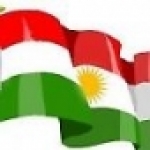yezidi dininde olanlar kurdce konusur.
bunu bilyoruz
peki lala yezidiler kurd mudur?
bana gore kurddurler
romatik kurd milyetcilerine gore de kurdun hasssi.
bazi yezidiler muhtemelen kedilerini pek kurd saymiyor.
dar kafali musluman kurdlerin kendi inanclarinda olmayan bu azinlik din mensuplarina
epey sikinti yaratmis oldugunu tahmin etmek icin sosyal bilimci olmak gerekmez.
biraz asagida diyar adli arkadas yazisinda kurdler ve yeziler diye ayirmisti.
simdi bugunki New York Times da yazilan makaleye gore de bazi yezidiler kurdlere karsi pek halishane dusunceler icinde degiller.
makaleyi yazan ve ona bagdat tan destek olan kislerin yakistirmasi veya tahrifati da olabilir. ancak galiba bazi yezidiler musluman kurdleri kurd olarak kendilerini de farkli bir entite olarak goruyor.
buyrun meraklisi yaziyi okusun:
By CAMPBELL ROBERTSON
Published: October 13, 2008
QAHTANIYA, Iraq — When an American platoon rolled into this dusty town in the country's northwest corner, a few miles from the Syrian border, the soldiers were greeted by dozens of people holding out pink and yellow Post-it notes. The notes appeared so quickly it seemed that people must have been carrying them at all times, just in case. On each was a name, written carefully in the Roman alphabet, and each came with a question: Can you tell me where this person is?
The New York Times
Many Arabs are afraid to enter Qahtaniya, even for water.
On the evening of Aug. 14, 2007, four truck bombs exploded here and in the nearby towns of Jazeera and Azair, killing 313 people and wounding 704, local officials said. Nearly 400 houses were destroyed in the attack, the largest coordinated bombing of the Iraq war. The explosions were so huge that dozens of those closest to the bombs vanished without a trace, leaving their relatives to wonder, more than a year later, where they could have gone.
“We just want to know if they're alive or dead,“ said Ismail Zandin Jindo, 70, who was holding out two wrinkled birth certificates.
The people here are Yazidis, adherents of an ancient religion with roots in Zoroastrianism. Iraqi and American officials pinned responsibility for the bombings on Sunni Arab extremists, who consider the Yazidis devil worshipers.
The next year was one of rebuilding, and the center of the village still seems to be an enormous construction project. But since the violence, tensions have only worsened.
Immediately after the attacks, Kurdish security forces moved into Qahtaniya and other Yazidi villages, having already made a fortress of Sinjar, a city a few miles north. They surrounded the towns with earthen berms, set up checkpoints and created what was in effect a wall between the Yazidi areas and the Arab villages to the south, towns that have become crippled by drought and dominated by Sunni insurgents.
While Qahtaniya lies far outside the boundaries of Iraqi Kurdistan, the semiautonomous Kurdish region, the Kurds have a long history in the area, which had a significant Kurdish population until 1975, the year of a failed Kurdish uprising.
Just as Saddam Hussein would do decades later in the fractious city of Kirkuk, the Baathist government retaliated with a policy of ethnic and sectarian relocation, moving Yazidis into towns around Sinjar and Arabs into towns farther south, near the rich wheat and barley fields on the desert's edge. Many Kurds in Sinjar were forced out, leaving the area mostly devoid of Kurdish influence for the next three decades.
The Kurds returned to the Sinjar area in 2003, almost simultaneously with the American invasion of Iraq. Since then, they have made Sinjar a striking example of Kurdish military and economic efficiency. BMWs are not uncommon sights. They have also taken harsh measures against the Arabs — not without reason, they say.
“We could throw all the Arabs out of the city,“ said Karim Sinjari, the Kurdish government's minister for internal affairs, whose own family was forced out in 1976 after he took part in the Kurdish uprising. “But the Americans told us we have to wait.“
Kurdish officials say that without the tight security, the residents of small towns like Qahtaniya would be left vulnerable to massacres. They also say that the Yazidis are true Kurds and that if they were allowed to vote in a constitutionally mandated referendum, they would choose to be administered by the Kurdistan Regional Government.
Most Yazidis would agree, but only in public.
Hamed Ido Hammo, a village elder in Qahtaniya, was one of the few willing to speak out openly against the Kurds. Surrounded by approving listeners in his quiet courtyard on a hot afternoon, Mr. Hammo said the Kurdish security presence was nothing less than a power grab, an opinion not hard to find in conversations around the town. In a sign of the profound distrust that exists between Kurds and some Yazidis, Mr. Hammo even said the bombings had been provoked by Kurdish troops.
“Now they have an excuse to rule the area and say it's not safe,“ he said. “They say the bad people are Arabs so they can take over.“
Local Yazidis complain that the Kurds pay tribal leaders for their loyalty (an accusation denied by the Kurds) and that the Kurds arrest anyone who opposes their presence. As proof, they point to several people who were detained after talking to a team from the United Nations about the situation in Sinjar.
But even if Yazidis would like to, it is impossible to return to the situation before 2003.
The Arab villages to the south, towns like Baaj, where a hulking granary that once supported the town now sits idle, have suffered severely in the last five years. Reeling from the drought, the towns were overrun in 2004 and 2005 by insurgents who used them as bases for attacks on Mosul, Tal Afar and other cities in the region. A strict form of Islam was enforced and extortion was rampant.
Since then, American and Iraqi forces have tried to clean out the insurgents and rebuild the towns but “terrorists still exist,“ said Abdulraheem Jassim Muhammad, the mayor of Baaj, the largest of the villages. “Even in the police.“
Hopes of revitalizing the economy have not been helped by the presence of the Kurdish security forces, local residents and American military officials say. Since the Kurds' arrival, Arabs have been afraid to go to Yazidi towns like Qahtaniya, even to draw water from their wells, and it has become nearly impossible for Arabs to buy real estate or find jobs in Sinjar.
With tensions between Yazidis and Sunni Arabs growing, even Yazidis who bristle under the Kurdish presence say they would vote to join the Kurdish region in a referendum, if only for the security.
There is a further problem, though. The Sinjar area is separated from Kurdistan by a vast stretch of land occupied by Arab tribes that maintain friendly relationships with the Kurds but have no intention of joining Kurdistan.
The near impossibility of attaching the Sinjar area to Iraqi Kurdistan has prompted some local Yazidis — as well as some American military officials — to suspect that the Kurds are using these areas as leverage, a bargaining chip for political negotiations over the status of Kirkuk. Kurdish officials deny that this is the case, insisting that a popular referendum is the only way to redress Mr. Hussein's demographic manipulation.
All of which leaves the largely peaceful Yazidis of Qahtaniya in the all-too-familiar position for Iraqi minorities of existing between two antagonistic forces. As the 2007 bombings made horrifyingly clear, that can be an extremely dangerous place to be.
“We have nobody to ask for help,“ Mr. Hammo said, “except God and the American Army.“
Atheer Kakan contributed reporting from Baghdad.






Haksızlık olmuş gibi.